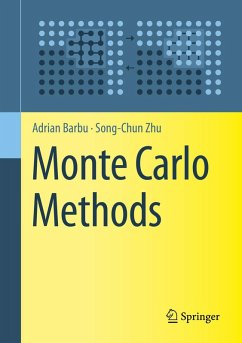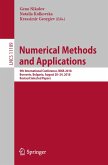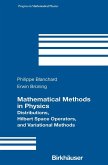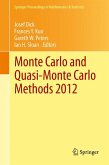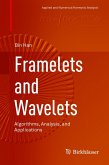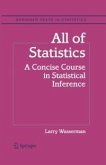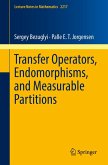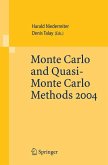This book seeks to bridge the gap between statistics and computer science. It provides an overview of Monte Carlo methods, including Sequential Monte Carlo, Markov Chain Monte Carlo, Metropolis-Hastings, Gibbs Sampler, Cluster Sampling, Data Driven MCMC, Stochastic Gradient descent, Langevin Monte Carlo, Hamiltonian Monte Carlo, and energy landscape mapping. Due to its comprehensive nature, the book is suitable for developing and teaching graduate courses on Monte Carlo methods. To facilitate learning, each chapter includes several representative application examples from various fields. The book pursues two main goals: (1) It introduces researchers to applying Monte Carlo methods to broader problems in areas such as Computer Vision, Computer Graphics, Machine Learning, Robotics, Artificial Intelligence, etc.; and (2) it makes it easier for scientists and engineers working in these areas to employ Monte Carlo methods to enhance their research.
Dieser Download kann aus rechtlichen Gründen nur mit Rechnungsadresse in A, B, BG, CY, CZ, D, DK, EW, E, FIN, F, GR, HR, H, IRL, I, LT, L, LR, M, NL, PL, P, R, S, SLO, SK ausgeliefert werden.
"This monograph ... is intended to be a textbook for graduate students in statistics, computer science and engineering. It covers a very broad range of topics ... . Each chapter is finished by a rather long list of relevant references. Thus, it can be used also as a reference book by researches in the fields of machine learning, pattern recognition ... . it can be a useful reference to many important Monte Carol methods." (Jaromír Antoch, zbMATH 1483.65001, 2022)
"True to its goal, the text offers a comprehensive overview on Monte Carlo methods. ... this text is a quality reference for researchers interested in computer vision, computer graphics, machine learning, artificial intelligence and related fields." (Grant Innerst, MAA Reviews, July18, 2021)
"True to its goal, the text offers a comprehensive overview on Monte Carlo methods. ... this text is a quality reference for researchers interested in computer vision, computer graphics, machine learning, artificial intelligence and related fields." (Grant Innerst, MAA Reviews, July18, 2021)

